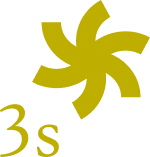Guidance and support for career development – right when it’s needed

The Vienna Qualifications Plan 2030 aims to implement measures that strengthen skills and employment of Vienna’s working population. Alongside young people in initial education, the plan focuses on two key adult groups:
- Individuals whose highest completed level of education is compulsory schooling
- Individuals with higher qualifications who are nevertheless employed in unskilled jobs
Together, these groups make up around one third of Vienna’s workforce. While the number of formally low-qualified individuals has slightly increased due to migration dynamics, the group of highly qualified adults working in low-skilled jobs is also steadily growing.
Over the years, the Vienna Employment Promotion Fund (waff) has developed a wide range of initiatives to support these groups. By combining career guidance at the Counselling Centre for Career and Continuing Education (Beratungszentrum für Beruf und Weiterbildung, BZBW) with financial support instruments—in particular the “Chancen-Scheck”, co-financed by the European Social Fund (ESF)—the waff offers comprehensive support. The “Chancen-Scheck” provides up to 5,000 euro in funding (with up to 100% co-financing) to support the acquisition of an apprenticeship certificate, other educational qualifications, or the recognition of foreign credentials. In addition, the so called “Qualifications Passport” is used within career counselling to support clients pursuing extraordinary apprenticeship qualifications, promoting close cooperation between waff, PES, other counselling institutions, and the Apprenticeship Office of the Vienna Economic Chamber.
The study focuses on BZBW clients during the period 2019 to 2023, analysing the development and outreach to the target groups, their perception of waff’s services, and the effects of the support measures received. It also identifies areas for improvement to further enhance the reach, sustainability, and effectiveness of waff’s offers, helping further develop the offers and reduce dropouts from education and training paths.
Methodologically, the project is based on the analysis of administrative data, 30 qualitative interviews with waff clients, an online survey of the target groups (clients in 2019, 2022, and 2023), as well as expert interviews.
There are download options for the final project report (German) and an English summary.
Project: Studie zu Kund*innen des waff-Beratungszentrums für Beruf und Weiterbildung aus der Zielgruppe des Qualifikationsplans Wien 2030
Contact: Günter Hefler
Client: Wiener ArbeitnehmerInnen Förderungsfonds (waff)
Duration: 06/2023-12/2024


